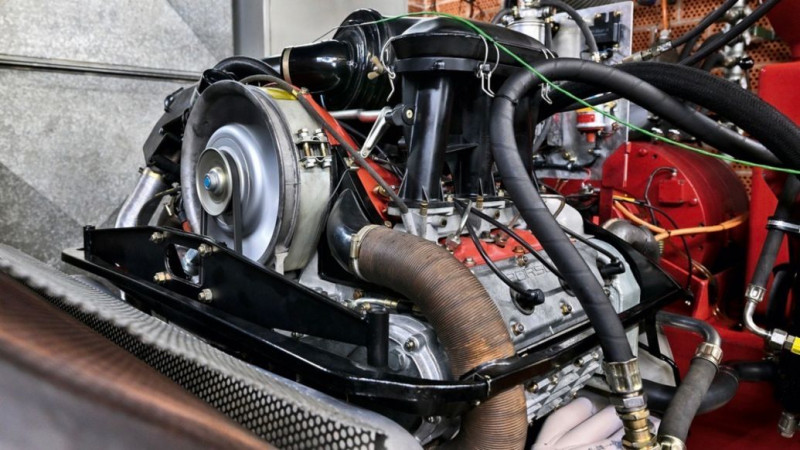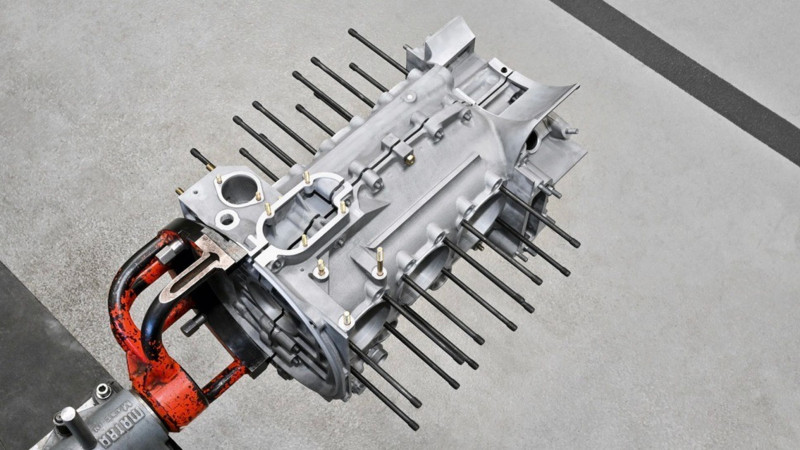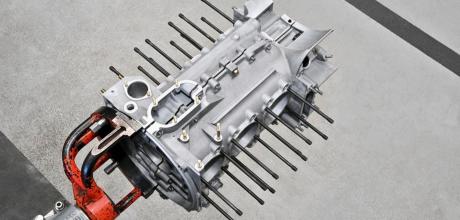Porsche Classic launches new magnesium crankcases for 911
Not long before this issue of Classic Porsche went to print, our editor, Dan Furr, was given a sneak peek of the UK’s first new magnesium crankcases released by Porsche Classic for air-cooled 911s built between 1968 and 1976. The reissue is for models of the F- and G-series powered by 2.0, 2.2, 2.4 and 2.7-litre engines. This includes the legendary 911 Carrera RS 2.7, which reached its fiftieth anniversary last year. With this exciting new release, it is possible for owners, workshop managers and historic motorsport engineers to order magnesium crankcases as original parts from their nearest Porsche Classic Partner Centre or preferred Porsche Centre, anywhere in the world.
Until now, repairs for the 911’s original magnesium crankcases have involved re-using second-hand parts from old engines or by trying to weld minor cracks. “This reissue closes another gap in our range of spare parts, making it possible to build completely new engines for most classic 911 models,” says Ulrike Lutz, Director of Porsche Classic. “There’s huge demand from our customers for true-to-original engine components like this.” He goes on to reveal Porsche Classic is already working on reissues of crankcases for additional generations of air-cooled 911, though it’s worth noting, for the past two years, new aluminium crankcases have been available for larger-engined 911s, including those from the 1990s.

For the magnesium crankcases, Porsche Classic based its work on the most recent and mature iteration of the series production part. All new 911 crankcases bear a blank number indicating the adopted design version, as well as a new part number. For 2.0 and 2.2-litre flat-sixes, this is 90110100146. Customers wanting magnesium crankcases for 2.4-litre engines should use part number 90110100147, while 91110100145 is for owners of 2.7-litre units. In the UK, the price is £8,827.38 including VAT, irrespective of part number ordered.
Based on gathered CAD data, an OEM supplier casts the crankcase using the sand-casting method. First, the appropriate moulds are produced in a plant and the cores are made from sand bonded with resin. After casting, these cores are destroyed to free up the cast part. The blanks are then machined on a five-axis CNC machine. More than fifty different cutting, drilling and milling tools are used. Very little material is removed. For the milled surfaces, for example, between three and four millimetres is despatched.

For component approval, a 2.7-litre Carrera RS engine was used as a test mule. Equipped with new magnesium crankcases and multiple measuring sensors, the engine was subjected to taxing endurance runs with precisely defined load conditions and carefully monitored engine speeds. Additionally, Porsche Classic technicians took oil samples and analysed them for suspended particles and foreign substances. When satisfied with their findings, and after all test runs were complete, the engine was disassembled down to the last bolt at the Porsche research and development centre in Weissach, where every component was thoroughly inspected and stress-tested.
Porsche Classic’s new magnesium crankcases for early 911 engines are the latest additions to a portfolio of factory components for legacy models, totalling some eighty thousand original parts. Technical literature is also available, including more than a thousand instruction manuals.
FOR COMPONENT APPROVAL, A 2.7-LITRE CARRERA RS ENGINE WAS USED AS A TEST MULE


